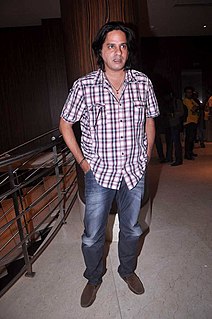A Quote by Margaret Hoover
There's no problem with a woman being president of the United States if you take her gender as a sole issue. Gender shouldn't matter.
Related Quotes
The United States are such a large place. And there are some states and some cities where the questions of gender or sexuality would not be asked, or where scholars or academics are working in small little corners of the universities trying to raise these questions and being told that either that they're strange or not appropriate or being actively opposed. There are other places where there is very active scholarship going on. Certainly on gender.
I think the way we look upon gender is that we're realizing that we're not that different, which is a good thing. The United States needs to come further with that. In the Scandinavian countries, we've come further when it comes to gender politics and how we look upon gender and how women are treated in general.
Gender is not something that one is, it is something one does, an act... a "doing" rather than a "being". There is no gender identity behind the expressions of gender; that identity is performatively constituted by the very "expressions" that are said to be its results. If the immutable character of sex is contested, perhaps this construct called 'sex' is as culturally constructed as gender; indeed, perhaps it was always already gender, with the consequence that the distinction between sex and gender turns out to be no distinction at all.
I once asked Myung Mi Kim where gender is located in her work, and she said simply, "it's everywhere," resisting the notion that gender needs to be overly inscribed into the text with some kind of message. Hers is the kind of work that has most influenced how I make poetry - the idea that we don't need to enclose or nail down gender or race, for that matter.
My conception around being a woman in 2016 has definitely been shifting over the past year, because I feel like I'm proud of womanhood, and I feel attached to it, and at the same time I'm someone who doesn't believe in having a gender binary, and so often times I separate those two concepts in my mind - the concept of being a woman and the concept of being a girl or being female, being kind of attached to a certain gender identity.
Someone who is experiencing gender dysphoria would be someone who feels that his biological sex doesn't match up with the gender that he feels. So, I might feel like I am a woman trapped in a male body, and you can imagine how horrible that would be to have that kind of experience or to think that you're a man trapped in a woman's body. It must be just a terribly difficult experience for those who experience gender dysphoria. But this is not anything to do with homosexual attraction or activity. It's a matter of one's self-perceived identity.
I've been exploring gender performativity in the Gulf since I was a teenager. I'm not a gender anthropologist, but I feel like there's an extreme binary between femininity and masculinity in the Gulf. From a young age, I knew I didn't want to be part of it. Gender is a huge gray area, and the problem with defined roles is that they cover up undefined ones.
I think growing up, the assimilation of most cultural conventions typically encouraged by a heightened awareness of gender and sex encourages a sort of separation of the self. What's so special about 'Hanna' is that her upbringing has negated this indoctrination; she's almost absolved of the pressures of gender or gender itself.
There may be countries [where] there's no gender inequality in schooling, even in higher education, but [where there is] gender inequality in high business. Japan is a very good example of that. You might find cases in the United States where at one level women's equality has progressed tremendously. You don't have the kind of problem of higher women's mortality as you see in South Asia, North Africa, and East Asia, China, too, and yet for American women there are some fields in which equality hasn't yet come.































